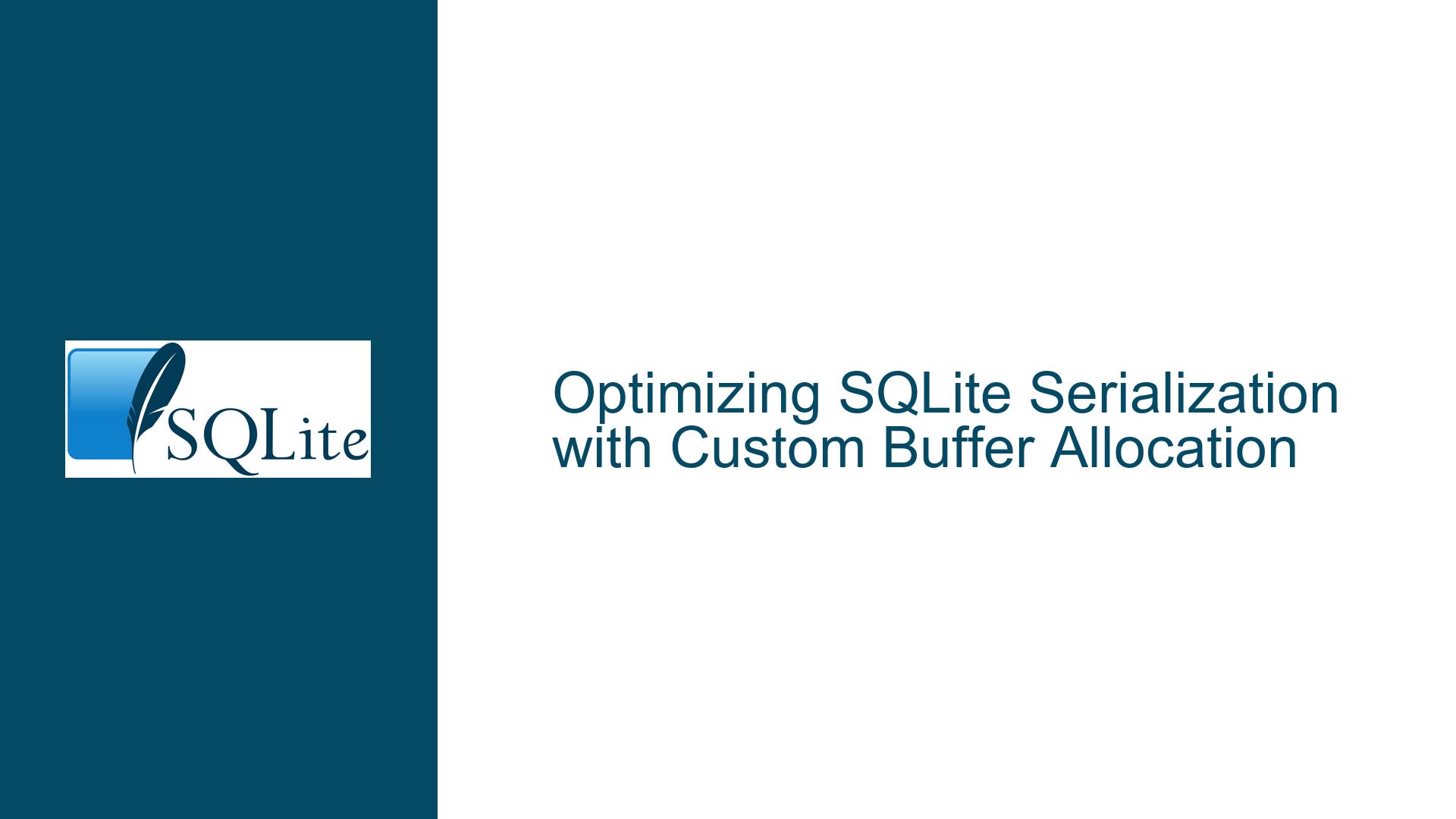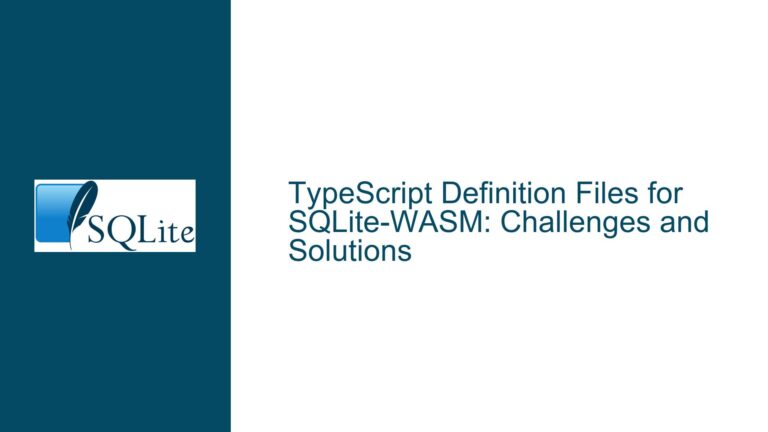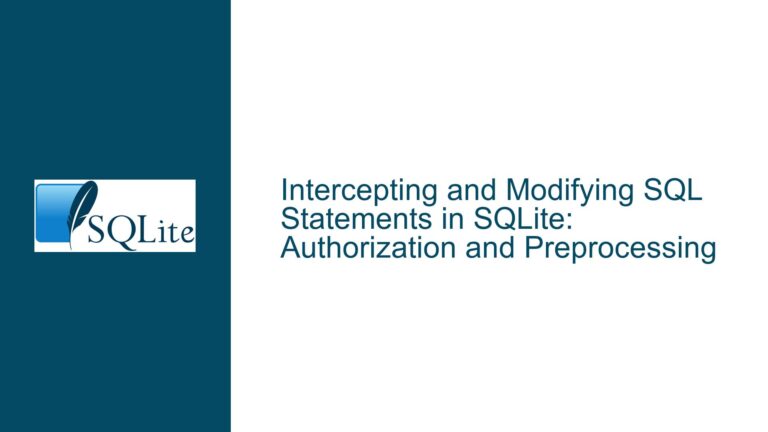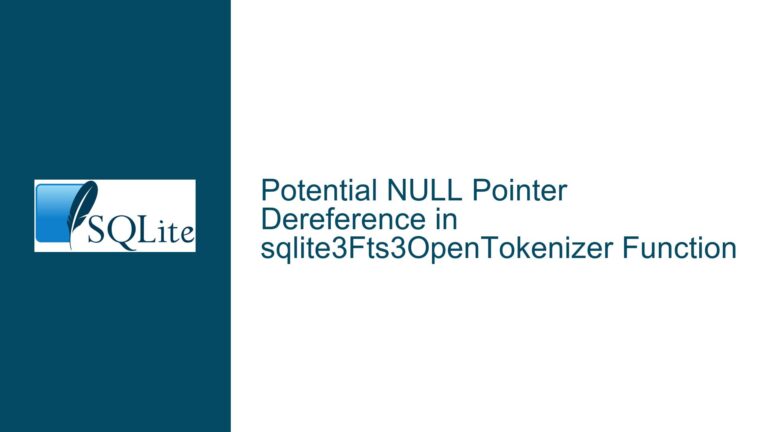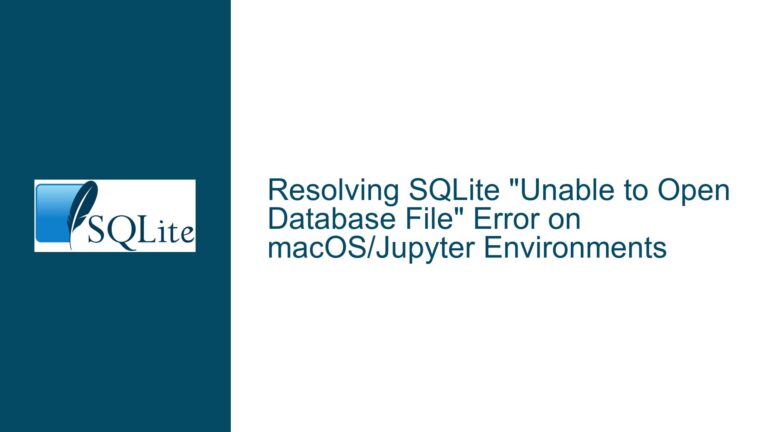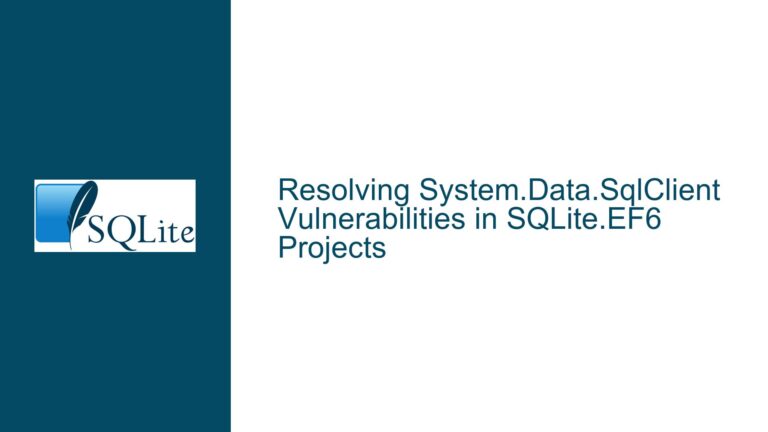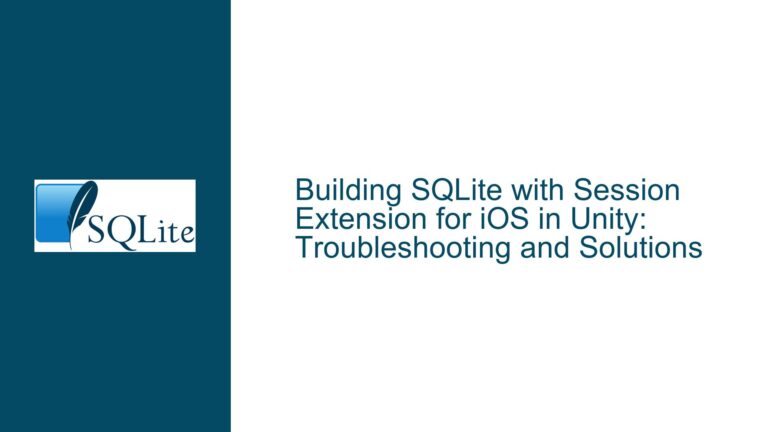Optimizing SQLite Serialization with Custom Buffer Allocation
SQLite Serialization Overhead and Rust Vector Integration
The core issue revolves around the inefficiency of the current sqlite3_serialize function in SQLite, which does not allow users to pass a pre-allocated buffer for serialization. This limitation becomes particularly problematic when integrating SQLite with Rust, where the goal is to serialize an in-memory database into a Vec<u8> without unnecessary data copying. The current implementation requires copying the serialized database twice: once into SQLite’s internal buffer and then again into the Rust vector. This double copying introduces significant performance overhead, especially for large databases or high-frequency serialization operations.
The proposed solution involves extending the sqlite3_serialize API to support a "Bring Your Own Buffer" (BYOB) feature. This would allow developers to pass a pre-allocated buffer (e.g., a Rust vector) directly to the serialization function, eliminating the need for intermediate copies. The suggested implementation introduces a new flag, SQLITE_SERIALIZE_BYOB, which, when set, enables the function to use the provided buffer for serialization. If the buffer is insufficient, the function falls back to the default behavior of allocating a new buffer.
Performance Impact of Double Copying and Backup API Workarounds
The primary cause of the inefficiency lies in the design of the sqlite3_serialize function, which assumes that the caller does not have a pre-allocated buffer. This assumption forces SQLite to allocate its own buffer for serialization, which is then copied into the caller’s desired data structure (e.g., a Rust vector). This double copying is particularly detrimental in performance-critical applications, such as real-time data processing or high-throughput systems, where memory bandwidth and CPU cycles are at a premium.
A common workaround for this limitation is to use SQLite’s backup API in conjunction with a temporary connection. While this approach avoids the double copying issue, it introduces its own overhead. The backup API requires creating a temporary connection, performing the backup operation, and then serializing the backup. This process is significantly slower than direct serialization, as it involves additional I/O operations and memory allocations. Furthermore, the backup API is not designed for high-frequency use, making it unsuitable for applications that require frequent serialization.
The proposed BYOB feature addresses these issues by allowing developers to bypass the intermediate buffer allocation and copying steps. By enabling direct serialization into a pre-allocated buffer, the feature reduces memory usage and improves performance, particularly for large datasets. However, implementing this feature requires careful consideration of buffer management and error handling to ensure compatibility with existing SQLite APIs and avoid introducing new issues.
Implementing BYOB Serialization with SQLITE_SERIALIZE_BYOB Flag
To implement the BYOB feature, the sqlite3_serialize function must be modified to accept a pre-allocated buffer and its size. The proposed changes involve adding a new flag, SQLITE_SERIALIZE_BYOB, and extending the function’s parameter list to include the buffer size and address. When the flag is set, the function checks whether the provided buffer is large enough to hold the serialized database. If the buffer is sufficient, the function copies the serialized data directly into the buffer. If the buffer is too small, the function falls back to the default behavior of allocating a new buffer.
The following table summarizes the key changes required to implement the BYOB feature:
| Component | Change |
|---|---|
sqlite3_serialize Function | Add support for SQLITE_SERIALIZE_BYOB flag and buffer size/address parameters. |
| Buffer Management | Check buffer size before copying; fall back to allocation if insufficient. |
| Error Handling | Ensure proper error codes are returned for invalid buffer sizes or addresses. |
| API Documentation | Update documentation to describe the new flag and its usage. |
The implementation also requires modifications to the src/memfile.c file, as shown in the provided diff. Specifically, the changes include adding a new variable, szByob, to store the buffer size and updating the buffer allocation logic to use the provided buffer when the BYOB flag is set. The modified function checks the buffer size before copying the serialized data and falls back to the default allocation behavior if the buffer is too small.
To ensure compatibility with existing applications, the BYOB feature should be implemented as an optional extension. Developers can enable the feature by setting the SQLITE_SERIALIZE_BYOB flag when calling sqlite3_serialize. This approach minimizes the risk of breaking existing code while providing a performance boost for applications that require frequent serialization.
In addition to the core implementation, the BYOB feature should be thoroughly tested to ensure it works correctly in all scenarios. This includes testing with buffers of various sizes, including buffers that are too small to hold the serialized data. The feature should also be tested with different database sizes and configurations to verify its performance and reliability.
Finally, the BYOB feature should be documented in the SQLite API reference, with clear examples of how to use the feature in different programming languages, including Rust. The documentation should also include performance benchmarks comparing the BYOB feature to the default serialization behavior and the backup API workaround. These benchmarks will help developers understand the benefits of the feature and make informed decisions about when to use it.
By implementing the BYOB feature, SQLite can provide a more efficient and flexible serialization API that meets the needs of modern applications. This feature will be particularly beneficial for developers working with Rust and other languages that require direct control over memory allocation and data copying. With careful implementation and thorough testing, the BYOB feature can significantly improve the performance of SQLite serialization while maintaining compatibility with existing applications.
